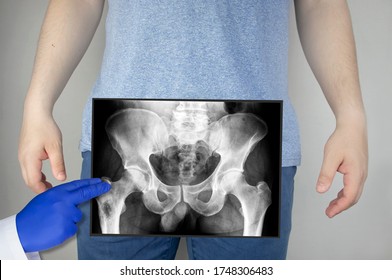
By Adelekan Oluwaseun Ojo
Frozen pelvis is a severe condition where the pelvic organs and surrounding tissues become stuck together due to extensive fibrosis (scar tissue formation) and adhesions. It is often associated with advanced endometriosis, pelvic inflammatory disease (PID), previous surgeries, or malignancies. This condition can cause significant pain, infertility, and other complications.
Causes.
Several medical conditions can lead to the development of a frozen pelvis, including:
- Advanced Endometriosis – When endometrial tissue grows outside the uterus, it can cause chronic inflammation, scarring, and adhesions.
- Pelvic Inflammatory Disease (PID) – Severe infections from bacteria like Chlamydia or Gonorrhea can lead to extensive scarring.
- Previous Pelvic Surgeries – Surgeries such as hysterectomy, C-section, or bowel surgery may cause post-operative adhesions.
- Pelvic Cancers – Ovarian, cervical, or colorectal cancers can invade surrounding tissues, leading to fibrosis and adhesions.
- Radiation Therapy – Used for treating cancers, radiation can damage tissues and cause fibrosis.
The symptoms vary depending on the underlying cause and severity but often include:
Chronic pelvic pain – Persistent pain due to adhesions pulling on organs.
Painful menstruation (Dysmenorrhea) – Severe cramps and pelvic pain.
Dyspareunia (Painful intercourse) – Due to restricted movement of pelvic organs.
Bowel and bladder issues – Constipation, painful urination, or difficulty emptying the bladder.
Infertility – Adhesions can block fallopian tubes or distort reproductive structures.
Treatment:
Managing frozen pelvis involves a combination of medical and surgical approaches, depending on the severity of symptoms.
A. Pain Management
Nonsteroidal Anti-Inflammatory Drugs (NSAIDs) – To reduce pain and inflammation.
Hormonal Therapy – Birth control pills, GnRH agonists, or progestins to suppress endometriosis-related symptoms.
B. Surgery
Laparoscopic Adhesiolysis – Minimally invasive procedure to remove adhesions and restore pelvic organ function.
Hysterectomy or Oophorectomy – In severe cases, removal of the uterus or ovaries may be necessary.
Bowel or Bladder Surgery – If adhesions severely affect the intestines or urinary system.
C. Fertility Treatment
In Vitro Fertilization (IVF) – Helps bypass fallopian tube blockages caused by adhesions.
D. Lifestyle and Supportive Care
Pelvic Physical Therapy – Helps improve mobility and reduce pain.
Dietary Changes – Anti-inflammatory diets may help manage symptoms.
Psychological Support – Chronic pain can affect mental health, so counseling may be beneficial.
The use of herbal medicines like Jigsimur will help control adhesions and clear all traces of infections from the entire body.
It is important to note that Frozen pelvis is a complex and debilitating condition that requires early diagnosis and a tailored treatment approach. If you experience persistent pelvic pain, infertility, or other symptoms, seek medical advice to determine the underlying cause and explore treatment options as soon as possible.
…………… Adelekan Oluwaseun Ojo, is a counseling psychologist, and a business & health consultant with Jigsimur Zdex Int’l, a company which is into the production and distribution of Jigsimur herbal health drink, a natural curative and preventive herbal medicine from South Africa.
For personal consultation, you can contact us on 07089225319 or 08035122399





